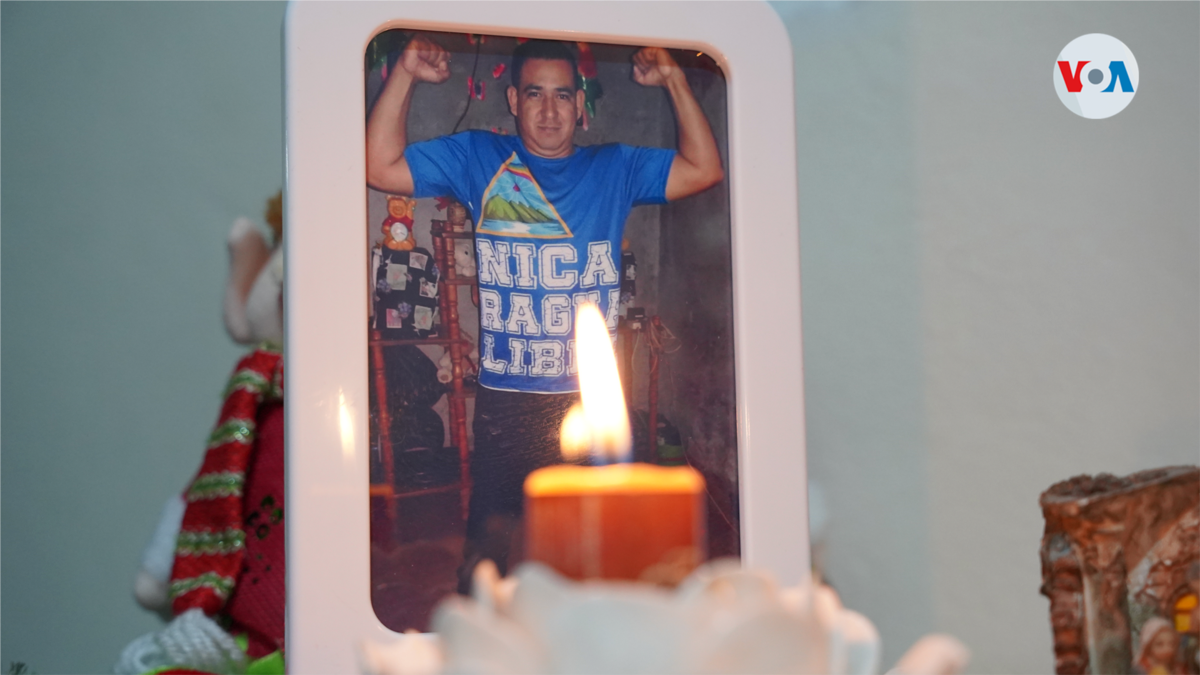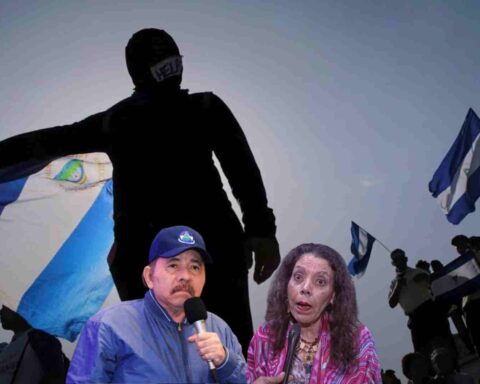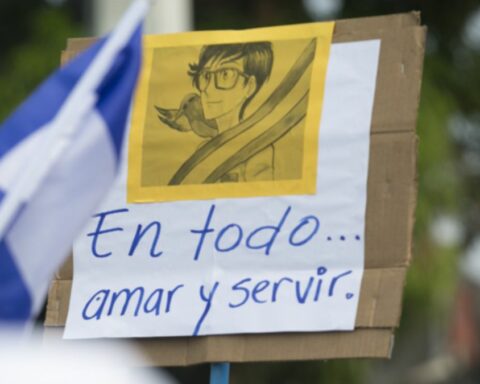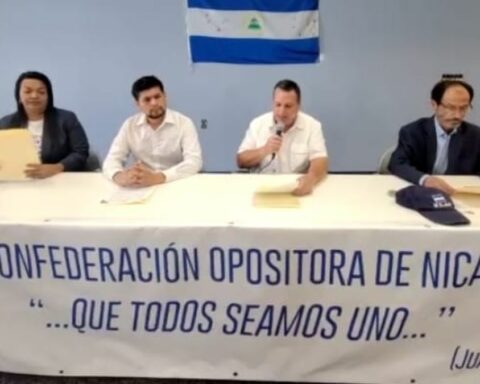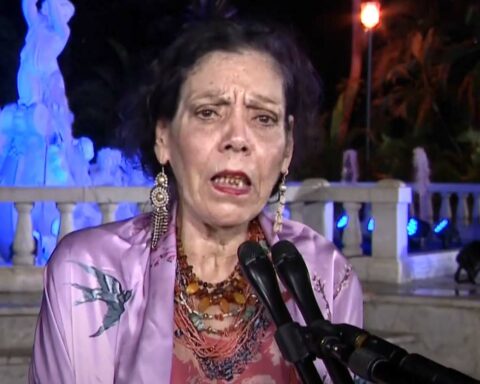The hopes for justice of Azucena López, whose son died during protests against the government of Daniel Ortega in 2018, have been raised again by a recent report in which UN experts determined that crimes against humanity were committed in Nicaragua.
The document from the UN experts comes almost five years after the demonstrations that left at least 300 dead documented by human rights organizations that have recognized the use of state repression and police violence to appease the protests.
López’s son, Erick Antonio Jiménez Lopez, 33, died on July 17, 2018 as a result of a gunshot wound that struck him in the chest, according to his family’s version, which appears in the digital page of Museum of the Memory of Nicaragua.
At the time of his death, the state-run Operation Cleanup was underway, carried out by police and paramilitaries in various parts of the country, which left dozens dead, wounded, and exiled, according to human rights organizations.
“Now there is hope that there will be justice, even if it lasts up to 40 or 50 years, as in other countries, and justice has been seen, so we hope,” López told the Voice of America.
Lopez is part of the group of victims called “Madres de Abril”, which is made up of many of the mothers of those who died in the context of the demonstrations of April 2018.
The report points to alleged abuses that include extrajudicial executions, arbitrary arrests, torture, arbitrary deprivation of nationality and the right to remain in one’s country.
UN experts are calling on the international community to “impose sanctions on the institutions or individuals involved.” The text recommends that independent investigations of the documented violations, abuses and crimes be launched so that the people who participated in their commission are held accountable, including the people who hold a higher level of responsibility.
The report identified a pattern of extrajudicial killings by National Police agents and members of pro-government armed groups who acted in a joint and coordinated manner during protests between April 18 and September 23, 2018. The government obstructed any investigation. about these and other deaths, indicates the text.
The Nicaraguan government did not respond to a request for comment from the voice of america for this report.
The fear of dying without justice being done
The arguments of the UN experts have also encouraged Martha Lira, who is part of the “Madres de Abril” association. her son, Agustin Ezequiel Mendoza Lira, who was shot dead during protests on June 14, 2018 in Managua. She was 22 years old.
His mother had had to migrate for economic reasons to Costa Rica, where she was at the time of her son’s death.
Lira awaits justice after the report, however, she believes that this is only a “pinch” in terms of what progress should have been made five years after the events to hold those responsible to account.
“You can see a little bit of the start of justice, but the time we have is for us to have made more progress, but we understand the context of the country,” he told the VOA.
Some mothers said they fear dying without justice, as has happened with at least two relatives, including Álvaro Conrado, the father of a child murdered in 2018, who recently passed away.
“The heinous way he was killed made me sick, and it wasn’t just my son, it was a lot of other people. I would hope to see justice, reparation for my son’s murder,” Lira concluded.
Impact of the UN report
Agents of the police and the National Penitentiary System and members of pro-government armed groups committed acts of physical and psychological torture, including sexual and gender violence in the context of the apprehension, interrogation and detention of opponents, according to the text.
The think tank found that the government has used arbitrary detention as a tool to silence critics. Many arrests were characterized by excessive use of force by police and violence by pro-government armed groups. In turn, it found that many people were detained without a warrant and held incommunicado.
Carlos Guadamuz, from the human rights group Nicaragua Nunca Más, assured the VOA that the report “has an impact at the levels of international criminal proceedings that are presented but must also allow guarantees of non-repetition as well as adopting reparations.”
According to Guadamuz, procedural possibilities could open up for those responsible for crimes in international jurisdiction.
“The report in a forceful and demonstrated way reveals the crimes of the regime, laying the foundations for justice because the dictatorship has already failed in its claim that the facts are forgotten,” he concluded.
Connect with the Voice of America! Subscribe to our channel Youtube and activate notifications, or follow us on social networks: Facebook, Twitter and instagram

